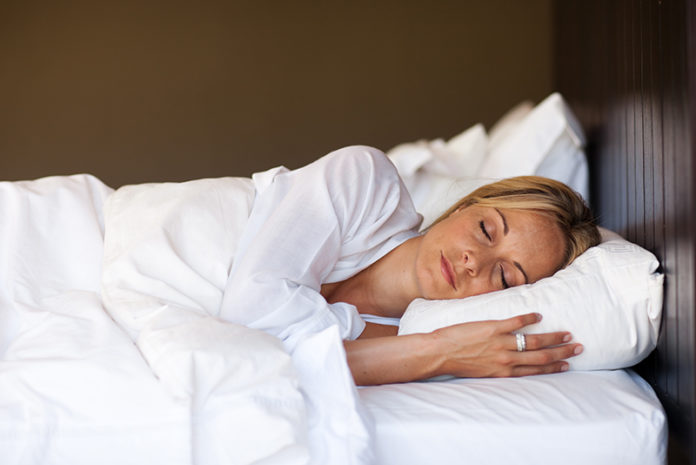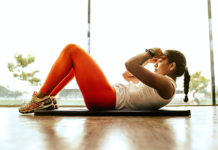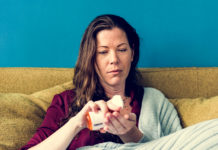Seven to nine. Most U.S. experts agree that this is the number of hours a healthy adult should sleep each night.
Sleeping longer has been linked to heart disease, diabetes and a host of other medical problems. Sleeping less has been, too.
According to the National Sleep Foundation’s 2018 Sleep in America poll, 46% of Americans aren’t getting the sleep they deserve.There are many potential medical causes for sleeping too much or too little, including depression, anxiety, sleep apnea and more.
The Sleep Foundation’s 2017 polling also points to negative sleep ramifications caused by nighttime smartphone and device use.
And, ironically, many Americans have turned to Sleep Apps, which they use on their smartphones and other devices at night!
Too Much Sleep: Consider the Medical Causes First
Research has linked many medical problems to oversleeping, according to Johns Hopkins Medicine. They include diabetes, heart disease and increased risk of death.
Depression and low socioeconomic status also are strongly associated with oversleeping. Those two factors might be the cause of the negative health effects. People of lower socioeconomic status might have less access to healthcare and be more likely to have an illness like heart disease, which can cause oversleeping.
Hypersomnia also causes oversleeping and causes people to suffer from extreme sleepiness throughout the day. Many have symptoms of anxiety, low energy and memory problems.
An increased need for sleeping also may be caused by obstructive sleep apnea, which often causes people to stop breathing momentarily during sleep, disrupting the normal sleeping cycle.
Too Little Sleep
On the flip side, not getting enough sleep is more common these days and can be equally bad. Continual lack of sleep puts you at higher risk of heart disease, no matter how old you are, how much you weigh and whether you smoke or exercise, according to Andrew Weil, M.D.
In his blog post on this topic, Dr. Weil quotes two studies, including a 2013 study from the University of Pennsylvania, which found that people who slept less than five hours a night are more likely to be obese and to have high blood pressure, high cholesterol and diabetes.
Conflicting News About our Screen Time
In its 2017 polling, the National Sleep Foundation raised a possible connection between screen time and sleeping disruption.
In its national survey, the foundation found that 48% of adults used devices in bed at least once during the past week, including 28% who did so every day of the week.
“Moreover, 21% report picking up the device again after initially falling asleep – including nearly one in 10 who went so far as to send emails or texts in such circumstances,” the report reads. “It’s not a good sign.”
While the Sleep Foundation’s report doesn’t raise the issue, lighting experts and the National Institutes of Health have been raising issues for years about circadian rhythm disruption from nighttime exposure to certain types of light. Specifically, high levels of blue-rich light, characteristic of normal daylight, can be good for you in the morning. They suppress melatonin and increase production of alerting and mood-enhancing neurochemicals, such as serotonin and cortisol, and generally help entrain your circadian clock.
But exposure to artificial light at night from standard LED or fluorescent light fixtures, your computer screen, television and other devices suppresses melatonin when your body needs it and delays deep, REM sleeping. Installing a circadian-light optimization program such as Night Shift or F. Lux on your phone, tablet or computer, can eliminate this concern.
It’s worth consideration by the millions of Americans who have turned to sleep apps. They use on their phones, for a variety of sleeping solutions – some requiring the user to look at the screen.
There’s no FDA report or conclusive result data, but many sleep app users are happy with the results. Just read the Consumer Reports story of Elizabeth Shaw, a middle-of-the-night insomniac, who downloaded an app for $1.99, and seemingly cured her problem for good.
See a Doctor First
Clearly, with all the potential medical problems related to over- and under-sleeping, anyone with these problems probably needs a medical evaluation. Depending on the findings, there are an array of proven solutions – from both alternative and mainstream medicine.
Sleep apps, or in the medical community, Consumer Sleep Technology (CST) are mostly just a discussion point.
“CST is widespread and may improve patient engagement,” reads a May 2018 report in the Journal of Sleep Medicine. “Benefits of CST include increased awareness of the importance of sleep and the need for evaluation and treatment of sleeping disorders. CSTs may enhance the patient-provider interaction and as such, are adjuncts to clinical practice. Therefore, an understanding of the capabilities and limitations of CST is crucial.








